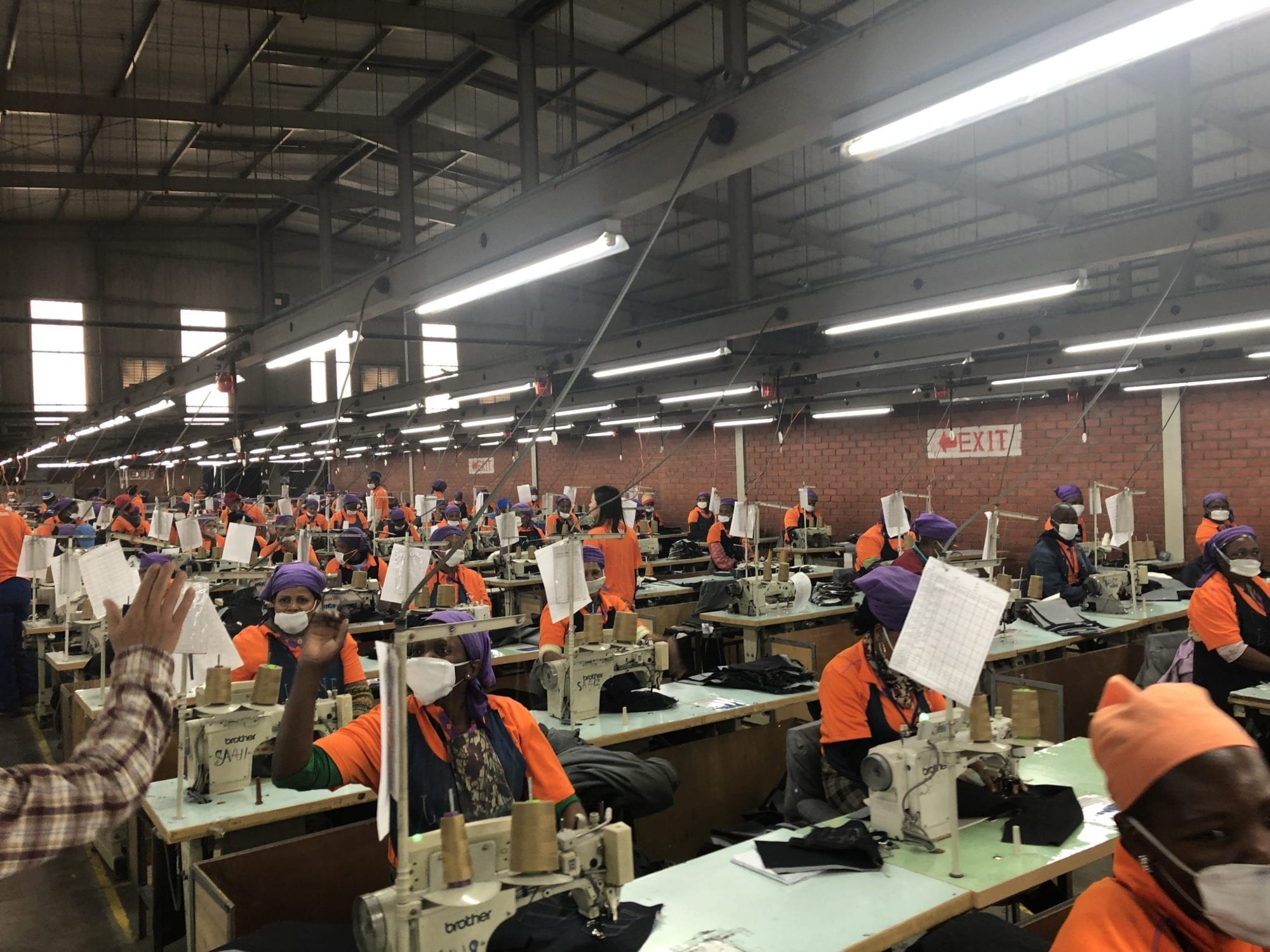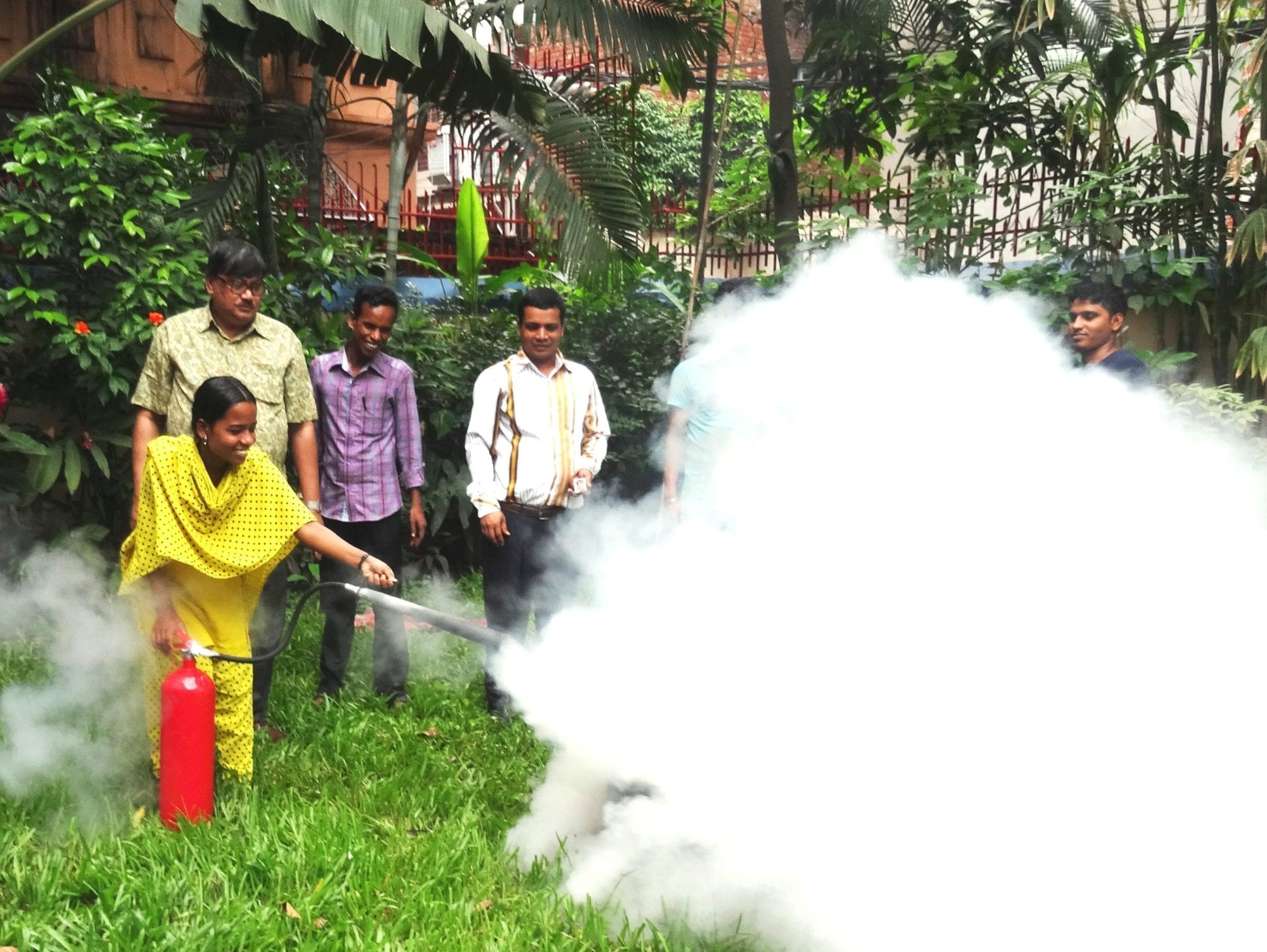Leading apparel brands, trade unions and women’s rights organizations sign binding agreements to combat gender-based violence and harassment at key supplier’s factories in Lesotho With support from U.S. labor organizations, collaborative program creates independent...
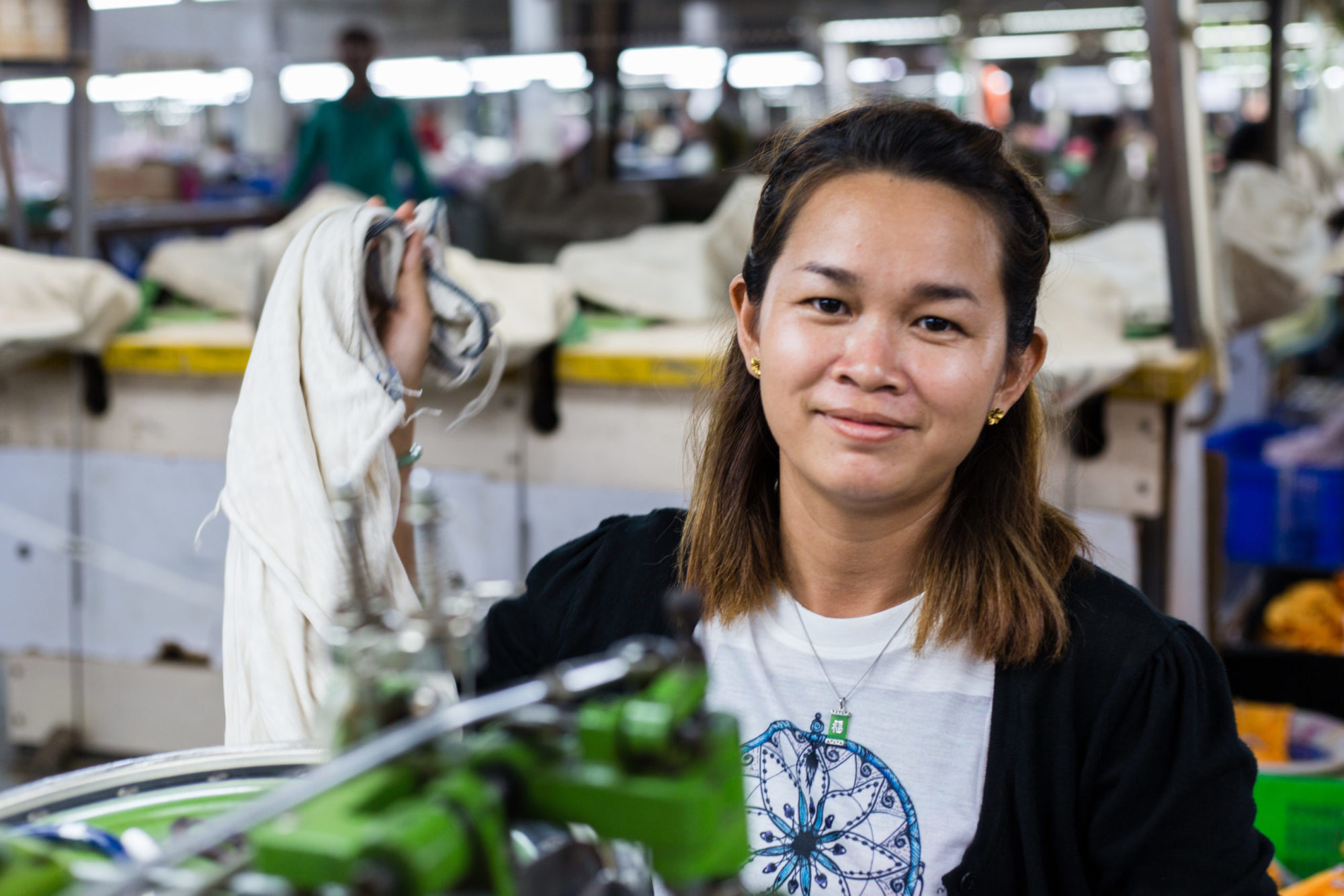
Heng Rithy, a garment worker in Cambodia, says her factory has good working conditions and she can support her family because workers have a union. Credit: Solidarity Center/Shanleystudio
650 Million Workers Earn Less than 1% of World Income
Some 650 million workers around the world earn less than 1 percent of global income—a figure that has barely changed in 13 years, according to a new International Labor Organization (ILO) report. At the national level, the share of income going to workers is actually...
Bangladesh Garment Workers Safer after Fire Trainings
Six years ago, the preventable Rana Plaza collapse in Bangladesh killed 1,134 garment workers in the world’s worst garment industry disaster. Corporate greed, inadequate labor and building code enforcement, and worker exploitation all contributed to the April 24,...
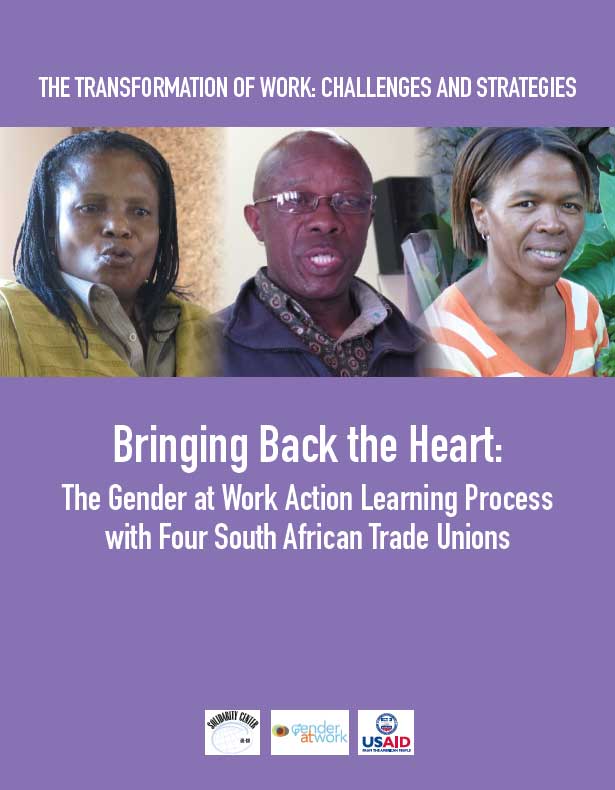
Bringing Back the Heart: The Gender at Work Action Learning Process with Four South African Unions (2013)
Four South African unions took part in a unique process with the South Africa Gender Action Learning Program and Labour Research Service to challenge male–dominated, hierarchical cultures. This report describes the step-by-step journey that led to more women joining...
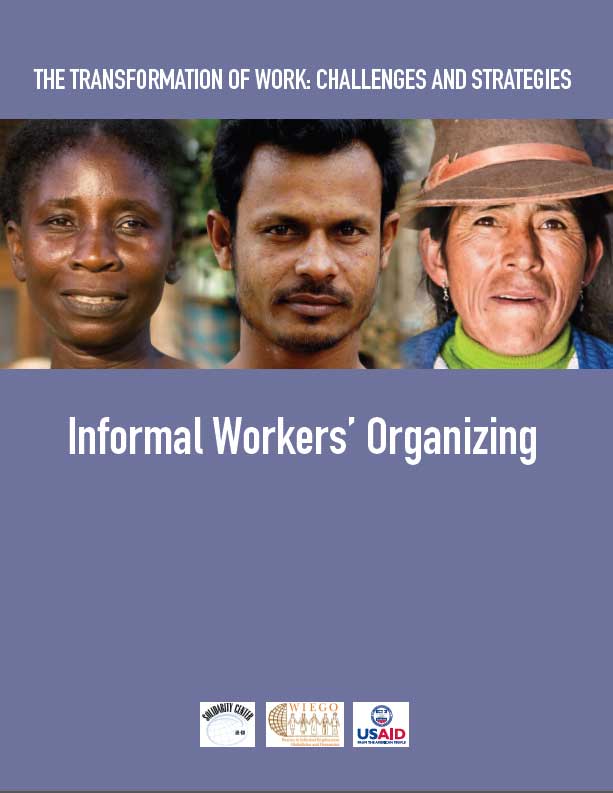
Informal Workers’ Organizing (WIEGO, 2013)
In overviewing self-organizing among such informal economy workers as waste pickers, domestic workers and construction workers, this report finds the lines are increasingly blurred between jobs in the formal and informal economies. This Solidarity Center report is...
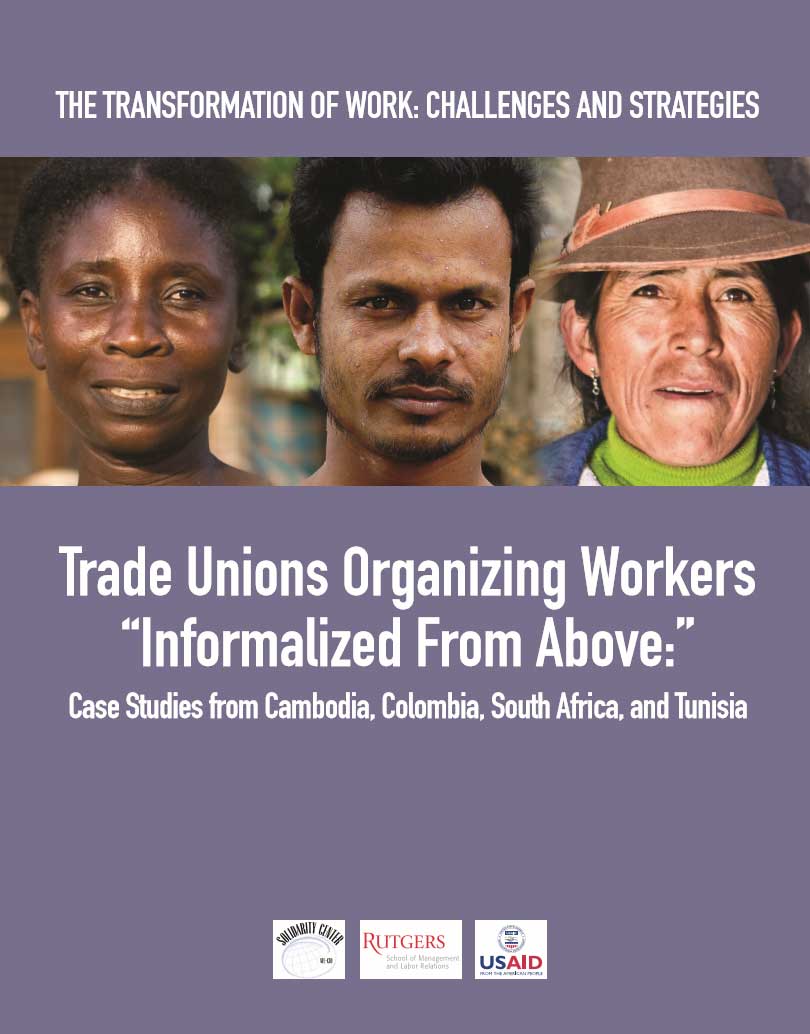
Trade Unions Organizing Workers “Informalized from Above”: Case Studies from Cambodia, Colombia, South Africa and Tunisia (Rutgers, 2013)
Four case studies examine successful union organizing among workers whose jobs have been privatized, outsourced or contracted out. This Solidarity Center report is part of a multiyear research project, funded by the U.S. Agency forInternational Development, to study...
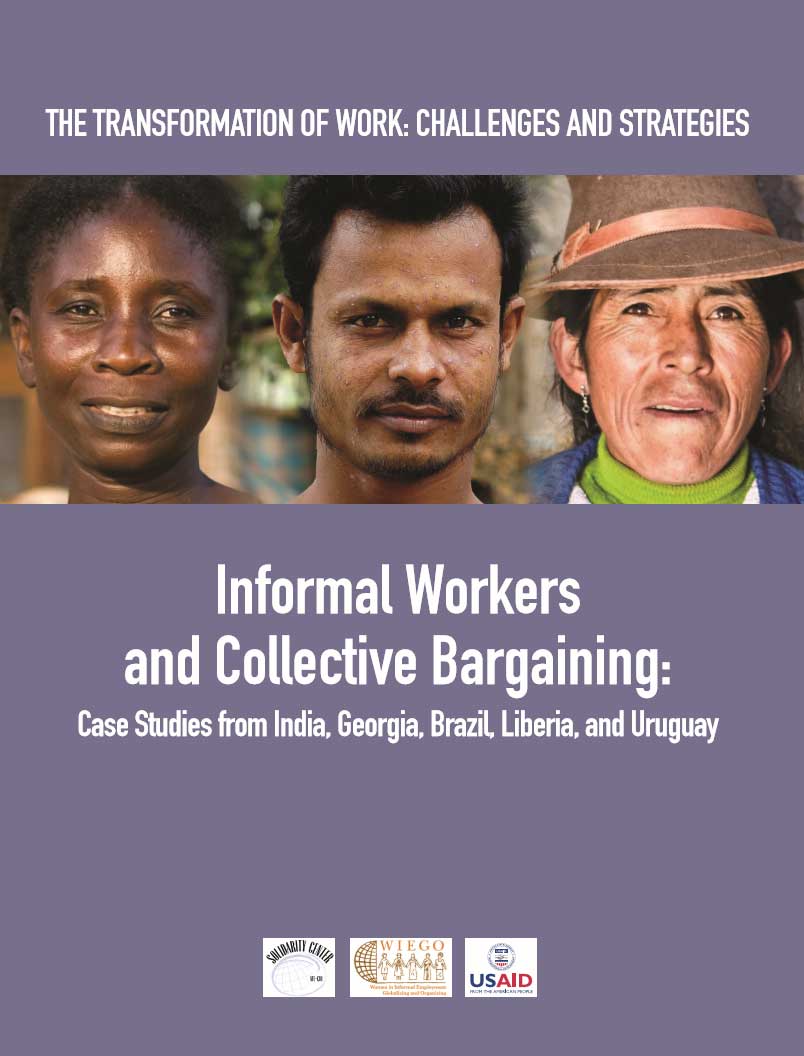
Informal Workers and Collective Bargaining: Case Studies from India, Georgia, Brazil, Liberia and Uruguay (WIEGO, 2013)
This report details a set of case studies on collective bargaining by informal workers in four different countries: Waste pickers in Minas Gerais state in Brazil, beedi workers in India, Georgia minibus taxi workers and street vendors in Monrovia, Liberia. The study...
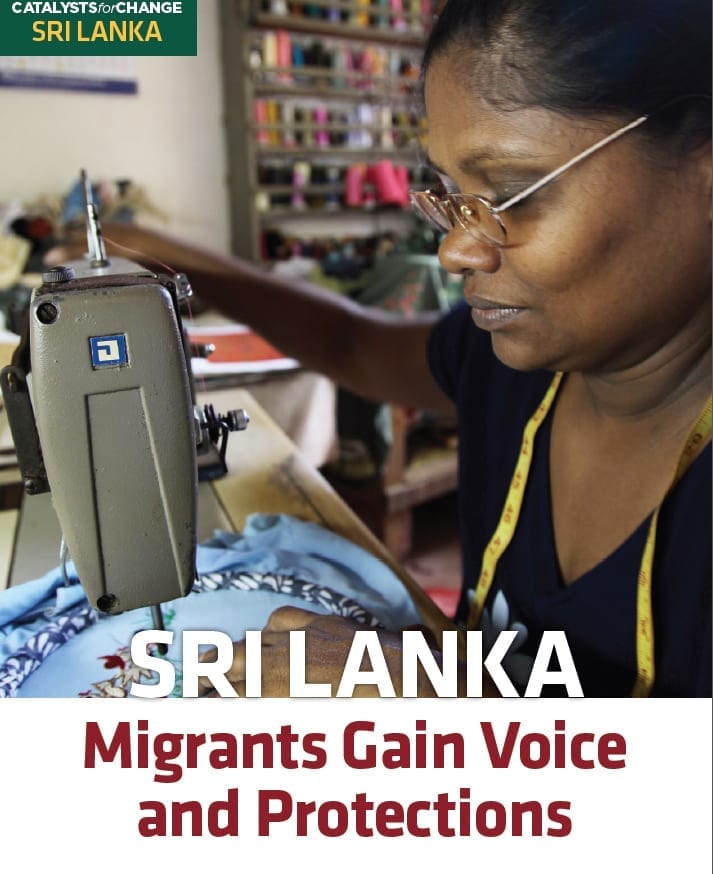
SRI LANKA: Migrants Gain Voice and Protections (2013)
The Migrant Services Center, a Solidarity Center partner, is assisting migrant workers and their families in Sri Lanka while championing structural change through legislative and governmental processes, and offers a model for other labor and worker rights...
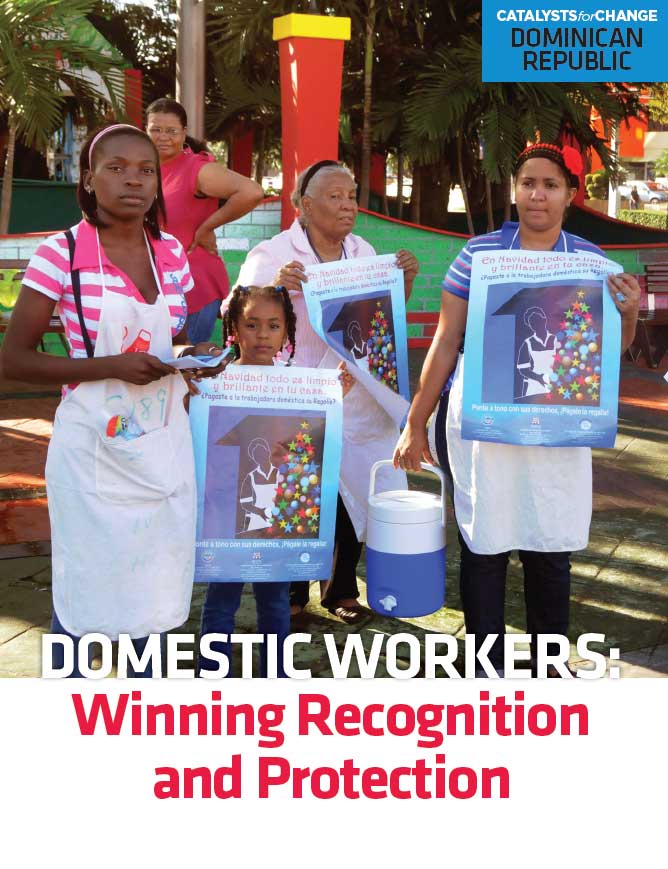
DOMESTIC WORKERS: Winning Recognition and Protection (2013)
Many domestic workers around the world are vulnerable to exploitation and not recognized by national labor laws. But in the Dominican Republic, domestic workers have campaigned to make gains over the last two decades—and a new Solidarity Center report shows how....

